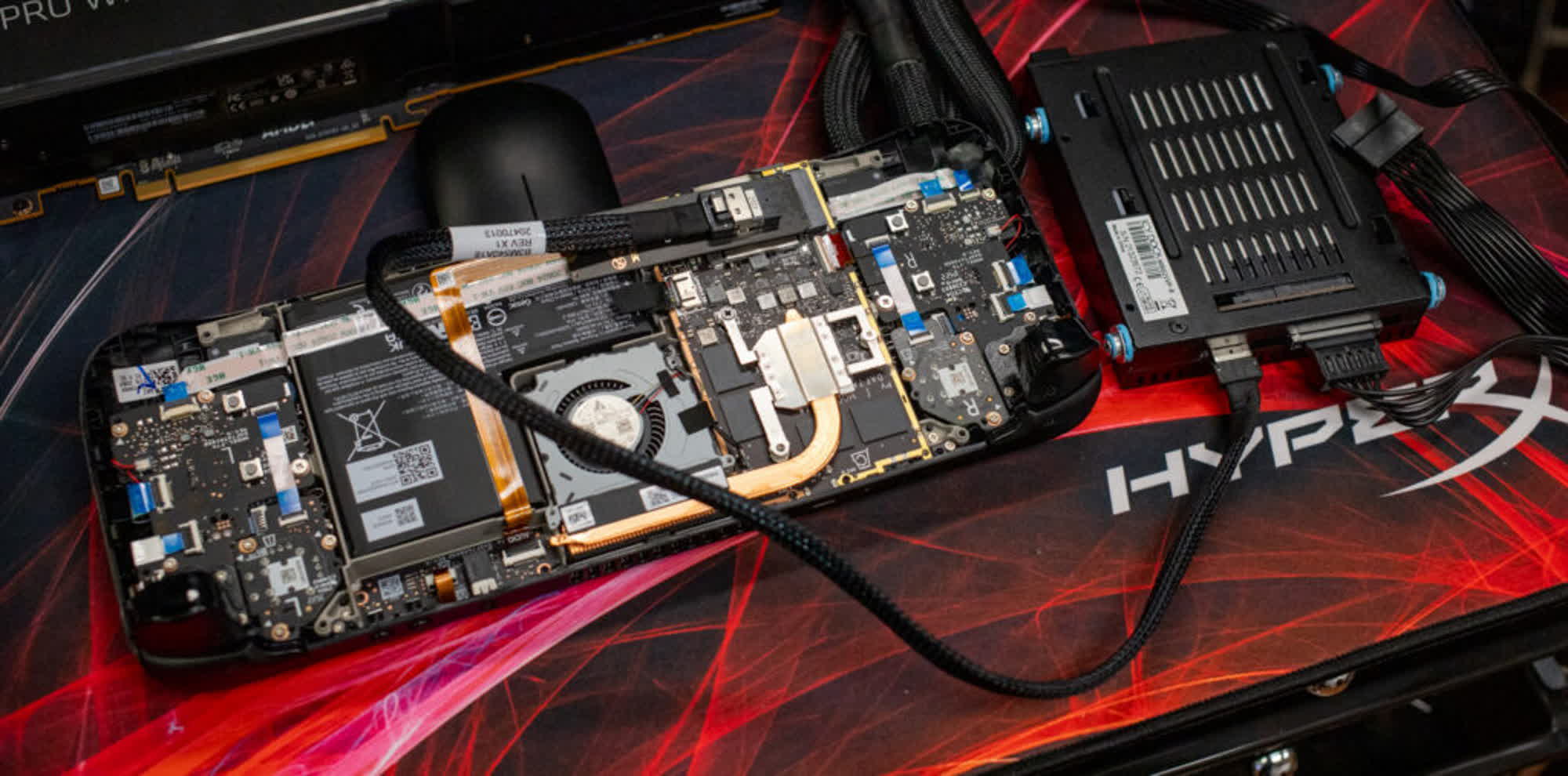In a nutshell: The Steam Deck modding community is showcasing incredibly imaginative (and costly) modifications for Valve's portable gaming console. The most recent achievement is focused on addressing one of the console's most glaring shortcomings: storage capacity.
The Steam Deck presents an enticing option for fans of portable PC gaming, but the console does have room for improvement. One of the system's major weaknesses lies in its storage capacity, with the high-end model sporting a maximum of 512 GB on its NVMe unit. Modern games often exceed the 100-200GB range, and storage manufacturers now offer larger NVMe M.2 2230 units as alternatives to upgrade the Steam Deck's integrated drive.
Modders at StorageReview have taken a different approach by attempting to connect the portable console to an exceptionally spacious enterprise SSD. This storage-focused website aimed to provide more room for the Steam Deck's Shader Pre-Caching system, a feature designed to reduce stuttering and other issues in demanding 3D games that require shader compilation to run smoothly.
Shader pre-caching does require a certain amount of download time and can consume a substantial portion of storage space, but a 61.44 TB SSD would undoubtedly resolve the issue permanently.
StorageReview replaced the Steam Deck's internal SSD unit with an M.2-to-U.2 adapter, which was subsequently connected to a Solidigm P5336 61.44 TB enterprise-grade SSD installed in an external enclosure. The SSD also required an external power supply unit.

The complex setup essentially transformed a portable, battery-powered console into a dedicated stay-at-home gaming system. However, it was still effective. The console successfully booted, and Steam OS 3 recognized the 61 TB SSD drive, allowing the modders to install games and work with files. Performance was impressive as well, boasting a 3,600 MB/s sequential read rate, in contrast to the internal drive's approximately 2,300 MB/s.
The SSD modification turned out to be surprisingly straightforward and uncomplicated to execute. This highlights Valve's openness and adaptability, demonstrating the robust hardware design of the Steam Deck and its potential for limitless customization.
Notably, the Steam Deck's ability to manage a "55.7 TB formatted" external SSD underscores its versatility and compatibility with high-end enterprise storage solutions, as observed by StorageReview. Even though the console no longer functions as a handheld system after the modification, it provides a glimpse into the future possibilities of portable gaming technology.
